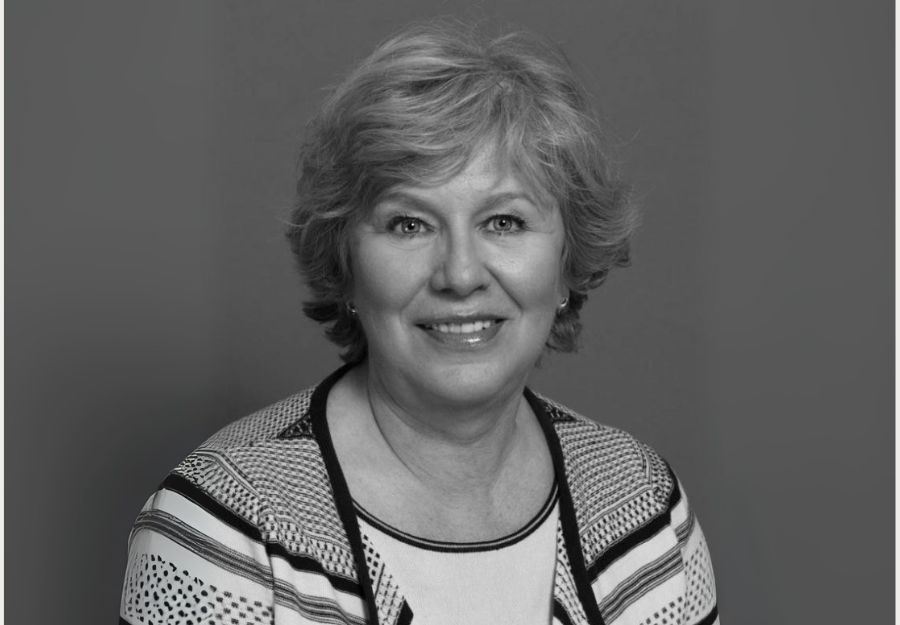In Memoriam Andrea Kárpáti
We remember with deep sorrow Professor Andrea Kárpáti, Doctor of the Hungarian Academy of Sciences, Professor Emerita of Corvinus, and a distinguished figure of communication and media studies in Hungary. At the beginning of June, we celebrated her 70th birthday at a warm, collegial departmental gathering, and only a few weeks later rejoiced at her appointment as Professor Emerita. After her retirement, she still had many plans she intended to carry out at our university.

Andrea Kárpáti (6 June 1955 – 8 August 2025) was born in Baja. She graduated from the Faculty of Humanities at Eötvös Loránd University (ELTE) as an art historian and a secondary school teacher of English language and literature. She earned her PhD at ELTE, and in 2002 was awarded the title Doctor of the Hungarian Academy of Sciences. Over her career, she also taught at Eötvös Loránd University and the Moholy-Nagy University of Art and Design (formerly the Hungarian Academy of Applied Arts), shaping for decades the outlook of future art teachers. From 2019, she was an enthusiastic and tireless professor at the Department of Communication and Media Studies of Corvinus University of Budapest, where she also led the Visual Culture Research Group. From 2023, she served as Co-Chair of the Hungarian Academy of Sciences’ Research Programme on Public Education Development.
Her main research fields included the study of the development of visual skills (children’s drawings, the visual language of adolescents), curriculum and educational material development in visual education, and talent support. She played a pioneering role in promoting the idea that visual education should not be regarded merely as a “practical subject,” but as an integral part of communication and cultural literacy. The later stages of her work were increasingly connected to international trends in visual culture and media reflection.
At Corvinus, she led the project AMASS (Acting on the Margins: Arts as Social Sculpture), part of the EU HORIZON 2020 programme Economic and Cultural Transformation in the Fourth Industrial Revolution. Within this framework, the Department of Communication and Media Studies offered training for young Roma women, supporting effective self-expression and success in the world of work. The course initiated by Andrea Kárpáti aimed to strengthen communication skills, creativity and resilience through visual and media education, opening wide opportunities for the practical application of knowledge in visual culture.
She was the author or editor of dozens of monographs and volumes, over a hundred scholarly journal articles and a similar number of book chapters, with nearly a thousand independent citations. At Corvinus, she was a dedicated core member, teacher and supervisor of the Doctoral Programme in Communication Studies at the Doctoral School of Sociology and Communication Science, chair of many dissertation committees and opponent of numerous theses. Her role as a creator of a scientific school was profound – more than thirty doctoral students earned their degree in visual communication and culture under her guidance.
Despite her unparalleled professional achievements, she remained modest, always seeking new challenges. With her expertise, experience and wisdom, she contributed greatly to the reputation of the Department, the Institute and the entire university. Thanks to her, Corvinus is now known internationally in the field of visual communication and culture. She worked tirelessly on the development of the undergraduate and master’s programmes in communication and media studies: her valuable proposals to strengthen the cultural studies component were integrated into the renewed curricula, offering students fresh perspectives.
As Tamás Bokor, Head of the Institute of Marketing and Communication Sciences, recalls: “As a colleague at both institute and department level, Professor Kárpáti spoke with clarity and insight, always keeping in mind the professional future of younger generations, sometimes with gentle self-irony, but never wavering in her conviction that future business professionals can only become good experts if they possess a solid cultural foundation.”
Her reputation extended far beyond Hungary. She was a board member and Vice President of the International Society for Education through Art (INSEA), and President of the European Network of Visual Literacy. She regularly returned as Visiting Professor to the University of Cologne and the Berlin Academy of Arts.
Her work was recognised with the Knight’s Cross of the Order of Merit of the Republic of Hungary (2005) and the Albert Szent-Györgyi Prize (2012).
In June 2025, the Senate of Corvinus University unanimously awarded her the title of Professor Emerita.
We will cherish her memory. As a scholar and as a person, she remains a role model for all of us.